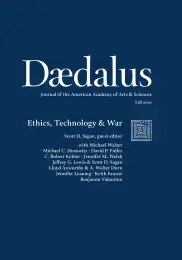Just & Unjust War, Uses of Force & Coercion: An Ethical Inquiry with Cyber Illustrations
The emergence of cyber means and methods of war, force, and coercion raises ethical questions under just war theory different from those historically generated by the development of ever more destructive instruments of war. Whether in armed conflict or contexts not considered war, cyber technologies create political and ethical incentives for their use. However, this attractiveness poses potential risks and dangers that, at present, are largely speculative but invite more ethical deliberation. Unfortunately, the convergence of political and ethical incentives on cyber in a context of increasing geopolitical competition and conflict make the prospects for ethical consensus on just and unjust cyber coercion, force, and war unlikely.
Among new technologies affecting ethical deliberations about war, none is as enigmatic as cyber. Within just war theory, cyber warfare exhibits attractive characteristics. Unlike the development of more violent weaponry, cyber does not endanger ethical objectives as directly in the just war tradition. Cyber weapons take a different trajectory within just war theory: away from extremes that threaten to obliterate ethics and toward scenarios in which the ethical compass functions but struggles to find true north.
This trajectory also appears in how cyber technologies highlight differences between war and force, which recalls Michael Walzer’s argument for “a theory of just and unjust uses of force.”1 Cyber creates possibilities for force “short-of-war”2 and coercion short-of-force and thus raises questions about the relationship among force, coercion, and ethical objectives of the just war tradition, such as protecting civilians. Cyber incidents often require analyzing concepts found in just war theory, such as reprisals and deterrence, in situations not amounting to war, creating complicated ethical contexts.
This essay, first, identifies how cyber technologies affect just war theory. Cyber warfare presents different challenges from those that have dominated just war thinking and invites ethical deliberations rather than marginalizing them. . . .
